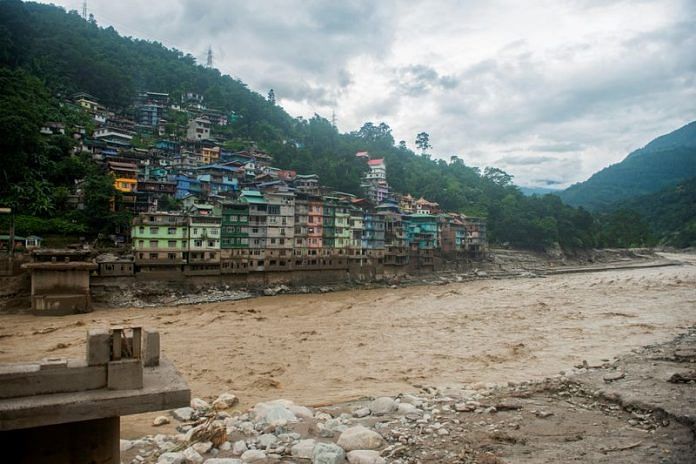By Gloria Dickie, Shivam Patel and Alison Withers
NEW DELHI (Reuters) – Scientists and government authorities were working on an early warning system for glacial floods at a Himalayan lake in northeast India when it broke its banks this week with deadly consequences.
Mountainous Sikkim state plunged into chaos on Wednesday as floods spurred by heavy rain and an avalanche killed at least 40 people. It was one of the worst disasters in the region in 50 years, and dozens remained missing on Friday.
The first part of the system, a camera to monitor Lhonak Lake’s level and weather instruments, was installed last month, officials involved in the project told Reuters.
If fully operational, the warning system could have given people more time to evacuate, scientists said.
Details of the Lhonak Lake warning system have not previously been reported.
“It’s quite absurd, really,” said geoscientist Simon Allen of the University of Zurich who is involved with the project. “The fact it happened just two weeks after our team was there was completely bad luck”.
He said they planned to add a tripwire sensor that would trigger if the lake was about to burst. That would typically be connected to an alert system that would warn residents to immediately evacuate.
“The Indian government was not prepared to do that this year, so it was being done as a two-step process,” he said.
The exact design of the system was still in development, an Indian official with direct knowledge of the project told Reuters.
The installed monitoring devices were supposed to send data to authorities, but the camera lost power for an unknown reason in late September, according to a source at the Swiss embassy, which supported the project.
As climate change warms high mountain regions, many communities are facing dangerous glacial lake outburst floods (GLOFs). Lakes holding water from melted glaciers can overfill and burst, sending torrents rushing down mountain valleys.
More than 200 such lakes now pose a very high hazard to Himalayan communities in India, Pakistan, China, Nepal and Bhutan, according to 2022 research.
In recent years, glacial flood early warning systems have been deployed in China, Nepal, Pakistan, and Bhutan.
An Indian official with direct knowledge of the project said that the plan was to pilot India’s first early warning systems for glacial floods at Lhonak Lake and another at nearby Shako Cho in Sikkim, before expanding to other dangerous lakes.
Scientists have for years said those two lakes are at risk of outburst floods, but the design process and search for funding caused time to pass without progress.
India plans to install early warning systems at several other glacial lakes, said Kamal Kishore, a senior official at India’s National Disaster Management Authority (NDMA).
He did not answer further questions on the Lhonak project.
However, Farooq Azam, a glaciologist at the Indian Institute of Technology Indore, noted that even if the system had been in place, the potential benefits were not always clearcut.
“Such kind of events are so fast that even if we have some kind of early warning system … we may only gain some minutes, maybe an hour,” he said.
(Reporting by Ali Withers in Copenhagen, Gloria Dickie in Amsterdam and Shivam Patel in Delhi; Editing by Cynthia Osterman and Michael Perry)
Disclaimer: This report is auto generated from the Reuters news service. ThePrint holds no responsibilty for its content.



